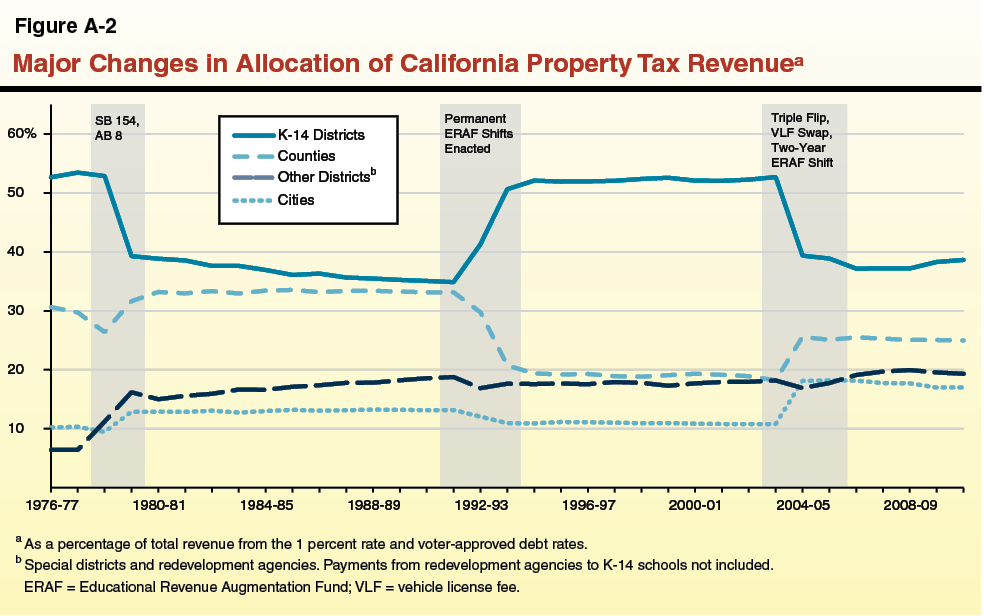Riverside County Property Taxes: Your Ultimate Guide To Understanding And Managing Them
Property taxes in Riverside County can be a tricky topic to navigate, but don't worry, we're here to break it down for you. Whether you're a homeowner, investor, or just curious about how the system works, this guide will give you all the information you need. Riverside County property taxes play a crucial role in funding essential services, and understanding them is vital for your financial planning.
Alright, let's get real for a second. Property taxes are one of those things that nobody really loves talking about, but they're super important. In Riverside County, these taxes help keep the lights on in schools, maintain roads, and support emergency services. If you're a homeowner, knowing the ins and outs of Riverside County property taxes can save you a ton of headaches and maybe even some cash.
Now, before we dive deep into the nitty-gritty, let me tell you something cool. This guide isn't just another boring article filled with jargon. We're going to make it easy to understand, practical, and even a little fun (well, as fun as taxes can be). So grab a coffee, sit back, and let's figure out everything you need to know about Riverside County property taxes.
Read also:Unveiling The Truth Behind Wilmington Nc Crime A Deep Dive Into Safety And Justice
Understanding Riverside County Property Taxes
What Exactly Are Property Taxes?
Let's start with the basics. Property taxes are essentially fees that homeowners pay to their local government based on the assessed value of their property. In Riverside County, these taxes go toward funding public services like schools, law enforcement, fire departments, and infrastructure projects. It's kind of like paying rent to the government for the privilege of owning land and buildings.
But here's the thing—property taxes aren't a one-size-fits-all deal. The amount you pay depends on several factors, including the location of your property, its assessed value, and the tax rates set by the county. Riverside County has its own set of rules and regulations, so it's important to understand how they apply specifically to you.
How Are Property Taxes Calculated in Riverside County?
Calculating property taxes might sound complicated, but it's actually pretty straightforward once you know the formula. In Riverside County, your property tax bill is determined by multiplying your property's assessed value by the tax rate. The assessed value is usually a percentage of the market value of your property, and the tax rate is set annually by the county.
For example, if your home is assessed at $500,000 and the tax rate is 1%, your property tax bill would be $5,000. Easy peasy, right? Of course, there are other factors that can affect your bill, such as additional assessments or exemptions, but we'll get into those later.
Riverside County Property Tax Rates
Alright, let's talk numbers. As of the latest data, Riverside County property tax rates hover around 1%. However, this rate can vary slightly depending on where your property is located within the county. Some areas may have higher or lower rates due to special assessments or additional fees.
It's also worth noting that California's Proposition 13 plays a big role in how property taxes are calculated. This law, passed in 1978, limits the amount that property taxes can increase each year to no more than 2% of the assessed value. This means that even if your property's market value increases significantly, your tax bill won't skyrocket overnight.
Read also:Daily Evening Item Lynn Ma The Ultimate Guide To Her Musthave Essentials
Key Factors Affecting Your Property Tax Bill
Property Location
Where your property is located can have a big impact on your tax bill. Different cities and districts within Riverside County may have varying tax rates and additional assessments. For example, properties in areas with better schools or more amenities might have higher tax rates to support those services.
Property Type
The type of property you own also matters. Residential properties, commercial properties, and agricultural land are all taxed differently. If you own multiple types of properties, make sure you understand how each one is assessed and taxed.
Assessed Value
Your property's assessed value is the foundation of your tax bill. This value is determined by the county assessor and is usually based on the property's market value at the time of purchase. However, thanks to Proposition 13, this value can only increase by a maximum of 2% per year, which provides some stability for homeowners.
Exemptions and Deductions
Now for the good news—there are ways to reduce your Riverside County property tax bill. The state of California offers several exemptions and deductions that homeowners can take advantage of. Here are a few of the most common ones:
- Homeowner's Exemption: If you live in your home as your primary residence, you may qualify for a $7,000 reduction in assessed value.
- Senior Citizen Exemption: Homeowners over the age of 55 may be eligible for additional tax breaks.
- Disability Exemption: If you or a family member has a disability, you might qualify for reduced property taxes.
- Renewable Energy Credits: Installing solar panels or other renewable energy systems can lead to tax credits.
Make sure to check with your local tax assessor's office to see if you qualify for any of these exemptions or others that might be available in Riverside County.
Appealing Your Property Tax Assessment
Why Appeal?
If you believe your property's assessed value is too high, you have the right to appeal the assessment. This process involves submitting a formal request to the county assessor's office and providing evidence to support your case. Common reasons for appealing include discrepancies in property details, market value changes, or incorrect information on your tax bill.
How to Appeal
The first step in appealing your property tax assessment is to gather all relevant documentation, including recent appraisals, comparable property sales, and any other evidence that supports your claim. Once you have your materials ready, you can submit an appeal form to the Riverside County Assessor's Office. Be prepared to attend a hearing where you can present your case and answer any questions from the assessors.
Property Tax Payment Options
When Are Property Taxes Due?
In Riverside County, property taxes are typically due in two installments. The first installment is due by December 10th, and the second installment is due by April 10th. If you miss these deadlines, you may incur late fees, so it's important to pay on time.
How to Pay?
There are several ways to pay your property taxes in Riverside County. You can pay online through the county's website, by mail, or in person at the tax collector's office. Some homeowners also choose to set up an escrow account through their mortgage lender, which automatically pays the taxes on their behalf.
Tips for Managing Property Taxes
Stay Informed
One of the best ways to manage your property taxes is to stay informed about changes in tax laws and regulations. Sign up for updates from the Riverside County Tax Assessor's Office and keep an eye on any new legislation that could affect your taxes.
Review Your Tax Bill
Always review your property tax bill carefully to ensure that all the information is correct. Mistakes do happen, and catching them early can save you a lot of hassle down the road. If you notice any discrepancies, don't hesitate to contact the tax assessor's office for clarification.
Plan Ahead
Property taxes are a significant expense, so it's important to budget for them. Consider setting aside a portion of your income each month to cover your tax bill when it comes due. This can help you avoid financial strain and keep your finances on track.
Resources for Riverside County Property Owners
There are several resources available to help Riverside County property owners understand and manage their taxes. Here are a few you might find useful:
- Riverside County Assessor's Office: The go-to source for all things property tax-related. Their website provides information on assessments, tax rates, and appeal processes.
- California State Board of Equalization: Offers guidance on state-level tax laws and regulations.
- Local Real Estate Professionals: Real estate agents and appraisers can provide valuable insights into market trends and property values.
Don't hesitate to reach out to these resources if you have questions or need assistance with your property taxes.
Conclusion
Riverside County property taxes can seem overwhelming at first, but with the right knowledge and tools, you can manage them effectively. Understanding how they're calculated, taking advantage of available exemptions, and staying informed about changes in tax laws are all key to keeping your finances in check.
So, what's next? If you're a homeowner in Riverside County, make sure to review your property tax bill carefully, explore any potential exemptions, and consider appealing your assessment if necessary. And if you have any questions or need further assistance, don't hesitate to reach out to the resources mentioned in this guide.
Before you go, we'd love to hear from you. Have you had any experiences with Riverside County property taxes that you'd like to share? Or do you have any tips for managing them? Leave a comment below and let's keep the conversation going. And if you found this guide helpful, don't forget to share it with your friends and family who might benefit from it too.
Table of Contents:
- Riverside County Property Taxes: Your Ultimate Guide to Understanding and Managing Them
- Understanding Riverside County Property Taxes
- What Exactly Are Property Taxes?
- How Are Property Taxes Calculated in Riverside County?
- Riverside County Property Tax Rates
- Key Factors Affecting Your Property Tax Bill
- Property Location
- Property Type
- Assessed Value
- Exemptions and Deductions
- Appealing Your Property Tax Assessment
- Why Appeal?
- How to Appeal
- Property Tax Payment Options
- When Are Property Taxes Due?
- How to Pay?
- Tips for Managing Property Taxes
- Stay Informed
- Review Your Tax Bill
- Plan Ahead
- Resources for Riverside County Property Owners
- Conclusion


